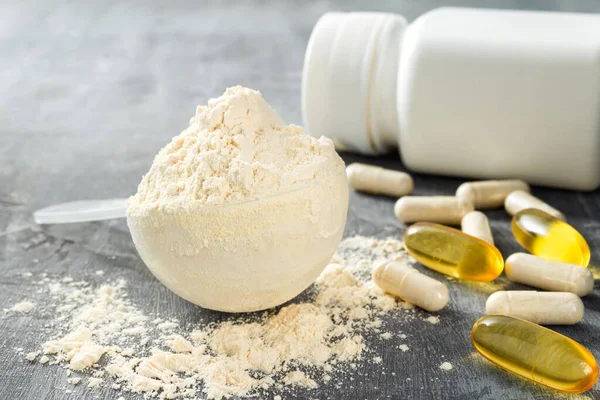
Taurine is an organic compound found in many foods and often added as an ingredient to energy drinks. Although often associated with energy drinks, taurine has a variety of uses and health benefits worth exploring. But what exactly is taurine? Let’s take a look at this fascinating substance from different angles.
The chemical formula of taurine is C₂H₇NO₃S. It is characterised by its presence in the tissues of both human and non-human animals. It is a sulphonic amino acid, different from common amino acids because it is not directly involved in the construction of proteins.
Discovered in the early 1820s, it takes its name from the Latin ‘taurus’, referring to bull bile, where it was initially isolated. However, we now know that taurine occurs naturally in the human body, mainly in the heart, muscles, kidneys and brain.
Taurine plays a crucial role in maintaining cardiovascular health. It helps regulate blood pressure and helps prevent heart problems by improving the heart’s contractility and reducing chronic inflammation. Several studies point to its positive effects on lipid metabolism and oxidative stress.
Often found in energy drinks, it has been shown to have a number of benefits for athletes. These benefits include improved physical endurance and faster recovery after exercise thanks to its ability to eliminate metabolic waste produced during intense effort. Athletes benefit from its antioxidant and anti-inflammatory properties.
From a neurological point of view, taurine is essential for the development of the central nervous system. Its supplementation can improve various cognitive functions, including memory and learning, due to its modulatory effects on neurotransmitters and its ability to protect neurons from damage.
Although taurine has many health benefits, there are also some potential dangers to be aware of. Excessive consumption, particularly via energy drinks, can lead to various health risks.
Too much taurine could cause symptoms such as headaches, nausea and reduced cognitive function. More worryingly, when consumed in large quantities with stimulants such as caffeine, tachycardia and other cardiac complications can occur.
Interestingly, most concerns about taurine arise from its interactions with other substances found in energy drinks. For example, the high concentrations of sugar and caffeine in these products can greatly increase the risks.
Although our bodies produce taurine naturally, its concentration can also be increased by our diet. This substance is found in a number of food sources, particularly those rich in animal proteins.
The best natural sources of taurine are meats such as beef, pork, lamb and poultry. Seafood, including prawns, scallops and fish, is also rich in taurine. Among vegan sources, however, few foods contain taurine, making supplements useful for those following an animal product-free diet.
For those looking to increase their taurine intake, specific supplements are available, usually in capsule or powder form. It is advisable to follow the advice of a health professional to determine the right dosage for your individual needs and avoid any risk of excess.
Taurine is involved in numerous biochemical processes in the human body. It plays a particularly important role in detoxification, helping to eliminate undesirable and toxic substances. As a conditionally essential amino acid, it is essential during periods of increased stress or serious illness.
At cellular level, it acts as a stabiliser of cell membranes and influences ion transport by modulating the concentration of intra- and extracellular calcium, potassium and sodium. This protects cells against osmotic variations and prevents damage caused by oxidative stress.
It is useful to compare taurine with other amino acids to understand what distinguishes it and justifies its importance.
Glutamine is an amino acid commonly known to support the immune system and intestinal health. Unlike taurine, glutamine is actively involved in protein synthesis, but shares certain similarities such as a role in muscle support and improving physical performance.
Creatine, famous among bodybuilders, improves the production of rapid energy (ATP) during short, intense workouts. On the other hand, helps mainly with recovery and the reduction of post-exercise oxidative stress. An interesting complementarity is emerging to maximise sporting benefits.
Lysine is an essential amino acid involved in protein synthesis, collagen production and calcium absorption. A comparison with taurine reveals that, despite their distinct roles, they both contribute to body homeostasis, demonstrating once again the diverse importance of amino acids.
In summary, understanding taurine involves examining its many facets, from its unique chemical structure to its varied benefits and potential dangers. In the face of increasing supplementation, especially in the sporting and nutritional context, it is essential to consider it carefully in the daily dietary balance.
